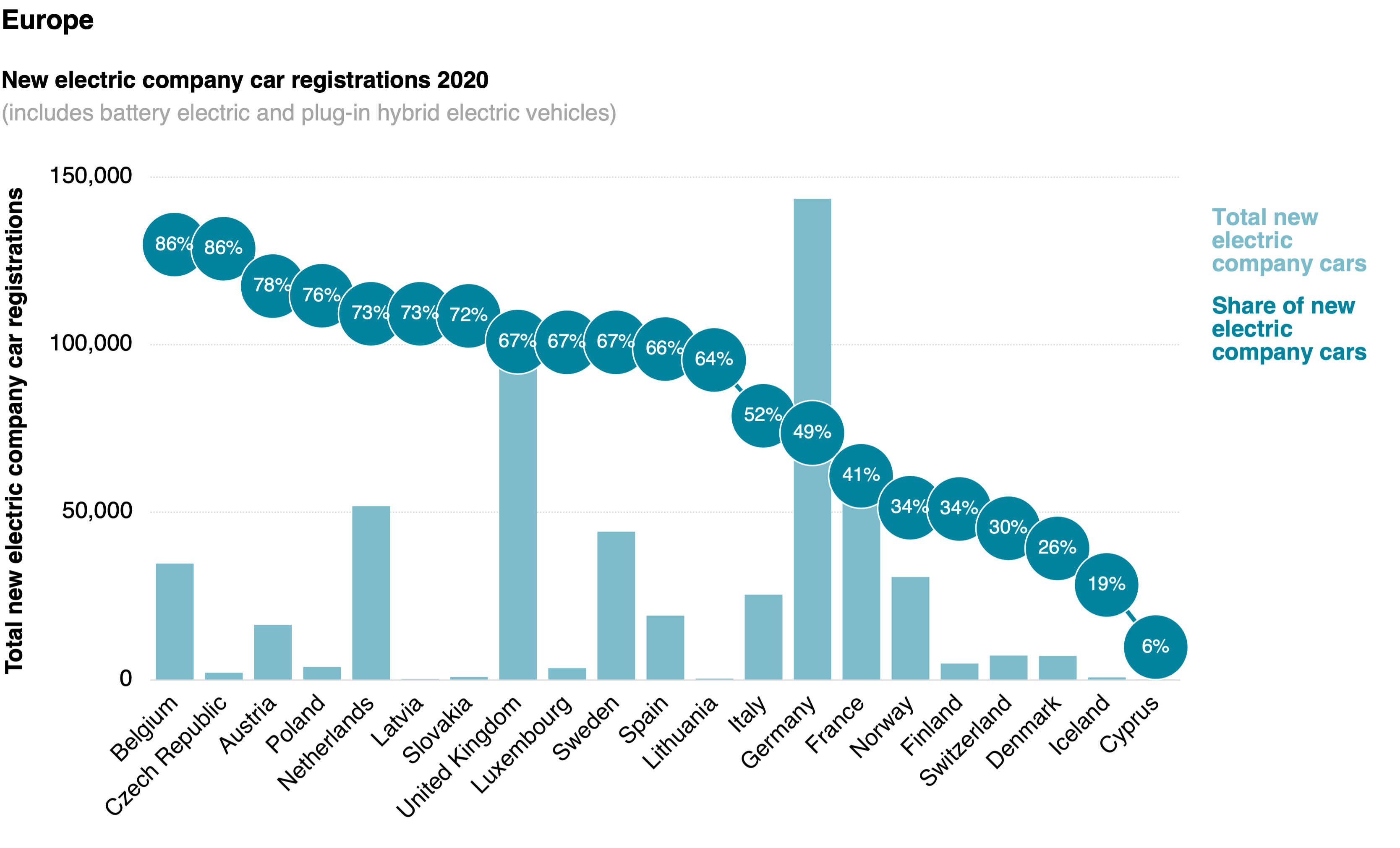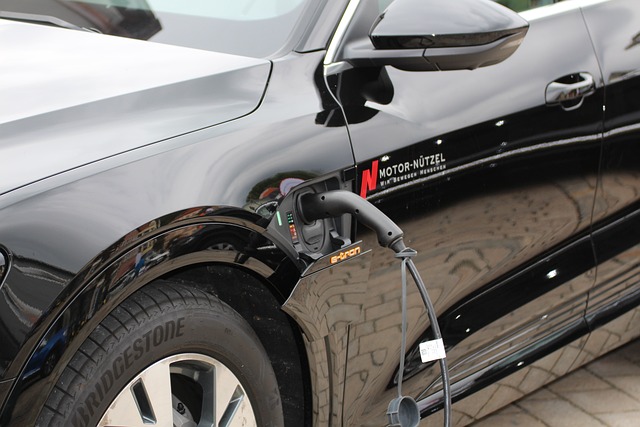
The tax benefits for electric cars have attracted a lot of attention. Some states offer incentives to buy and own electric cars, while other states waive the purchase taxes. The federal government also offers rebates on purchasing and owning an electric car. Some EVs may not be eligible for the full $7500 incentive. This is because the bill has strict requirements regarding sourcing.
Electric vehicles with the energy label "A", which are eligible for 30% off, will be exempted from tax. These vehicles are also exempt from 100% transport tax for the first two years. After three years they will only be subject to 50% of the transport taxes. The best efficiency category passenger cars are exempted from the transport tax. These vehicles emit a maximum of 110 g/km CO2.
Depending on the state the buyer lives in, he or she may be eligible to receive a rebate from either the manufacturer of the government. Most EVs qualify for the federal income tax credit, which is worth between $2,500 and $7,500. This credit can be reduced depending upon how many vehicles the manufacturer sold in the past.

Some states offer additional incentives along with the tax credit. California offers a $10,000 rebate program. The buyer can receive up to $500 cash in Texas. In Romania, buyers can receive up to 25% in government grants.
Electrified cars have a higher MSRP at first than other types. But, these costs are lower over the long run. The operating and maintenance costs of an electric vehicle are lower. They are also more environmentally friendly. As more people own and drive EVs, we could see huge benefits.
If you decide to buy an EV, it is important to research all the options before making the final decision. Every product comes with its own pros and cons. Find out the taxes involved. You must also learn how to claim tax credit. You can do this by using the VIN.
The federal government offers a $7500 credit in tax for used or new electric vehicles. This credit may be claimed only once per calendar year. This credit is not available to vehicles currently registered. It can only be applied to new EV purchases. Also, the credit cannot be transferred. To take advantage of this credit, you will need to wait until your annual income taxes are filed for the year you bought your EV.

You can also sell your EV for a profit. If you are a business owner, offering an EV to employees through salary sacrifice can help you save on your tax bill. To determine the value and cost of your time, you can use the Tesla Motors "True Cost Of Ownership" calculator. You can use the calculator to calculate the true cost for owning an electric vehicle.
FAQ
What qualifications is required to become an mechanic?
To become a technician, you will need to pass a series exams. These include:
-
A general knowledge test
-
A practical examination
-
An apprenticeship test
These tests will ensure you are familiar with the fundamental concepts of mechanics and physics before starting to work as a mechanic.
You'll be eligible for work as a mechanic after you have passed the tests. An apprenticeship is still required. This will require you to learn the trade.
To learn all there is to know about fixing vehicles, you will need workshops and classes. Working alongside skilled mechanics is also a must.
A mechanic must be highly focused and attentive to detail in order to succeed. It is essential to pay attention to all aspects of vehicle repairs.
You'll need patience and persistence to become a successful mechanic. If you don’t love to follow instructions, this may not the right career path.
This job is for you if you are passionate about cars and love fixing them.
How long is an automotive course?
An automotive course lasts for three years.
The first year is dedicated to theory and learning about cars. The second year is dedicated towards practical training. This includes learning how to drive, fix engine problems, and doing other maintenance jobs around your car. You will spend the final year working in a local garage to gain real-world experience.
What does it matter which college I attend?
It's not true. There is no difference in the programs offered by colleges for getting into automotive work. But, there are better programs at some schools than others. Look elsewhere if you want something more niche.
Is a career in automotive mechanic promising?
There are many exciting opportunities in the automotive industry for people who are driven to achieve excellence. This field requires hard work and the willingness to learn from others.
Excellent communication skills are essential as you will spend most of the time speaking to customers or other employees. You should also be willing to travel and work long hours, making commuting difficult.
You can take classes at universities and community colleges if you are interested in a career as an automotive technician. Many schools offer programs designed specifically for students interested auto repair, sales, and customer services.
You should choose to study mechanical engineering if you want to get a degree. A bachelor's degree can be obtained in four years.
Many employers will hire graduates straight out from school. So it's wise to start looking for employment while you still have the chance to study part-time.
After your education is complete, you will probably need some training in order to become an automotive technician.
This means you'll need to pass exams such as the Automotive Service Excellence (ASE) certification exam. This exam covers topics such as engine maintenance, brakes and suspension.
After passing the ASE exam, you can apply for a National Institute for Automotive Service Excellence license.
A license permits you to repair private vehicles. You will be compensated based on how many services you performed.
Not all states require licensing. You will need a license if you want to work in a different state.
Some states will not issue licenses until an individual has completed certain training. If this is you, you may need another option.
Is it worth being a mechanic.
The answer to this question depends on what you want from life if you are looking for money, then yes, but if you're looking for meaning and purpose, then no.
If you don't have any mechanics skills, then there's no point getting into it because you'll just end up wasting time. You won't become rich from it. It's unlikely that you will be famous. You won't be famous.
You would need to spend years learning how to do everything properly. Then you'd still have to pay someone else to fix your car when it breaks down. That's why most people don't bother doing it at all. They find something better.
Summarising, if your goal is to make lots of money, go for it. The mechanic's profession is not the right place for you if it means that you will live a fulfilled life.
Statistics
- Apprentice mechanics earn significantly less hourly than mechanics who have completed training, with a median wage of approximately $14.50 an hour, according to PayScale. (jobhero.com)
- According to the BLS, the median annual salary for automotive service technicians and mechanics in the United States was $44,050 in May 2020. (uti.edu)
- According to the BLS, total auto technician employment is expected to exceed 705,000 by 2030. (uti.edu)
External Links
How To
How to properly diagnose your car for repair
Before you can determine if your car requires repairs, it's important to first analyze the symptoms. Follow these steps to properly diagnose your vehicle.
-
Check engine lights. Make sure to check all dashboard indicators like the engine light indicator (oil pressure gauge), the battery indicator (battery light indicator), and the RPM indicator (rpm gauge). If any of these indicators have been flashing continuously for several days it could mean that there is something wrong with your vehicle.
-
Inspect the tire treads. If the tires are worn out, they could cause problems with handling and braking. Also, inspect the treads of your wheels. They should be clean, and they should be smooth. This can be done by removing the wheels from the vehicle and taking them off. A flashlight can be used to check how worn the treads are.
-
Monitor the level and consistency of your brake fluid. You must keep track on the level of brake fluid in your vehicle. You can ensure that your brakes are working properly by monitoring the level of brake fluid in your vehicle. If the brake fluid level is low, your brakes might fail when you apply pressure to them.
-
Check the suspension system. Vehicles usually have a suspension system that helps absorb shocks and vibrations while driving. It gives you better control and allows for smoother accelerations and decelerations. A suspension problem can cause your vehicle to feel wobbly and shake uncontrollably. To test whether your vehicle has a suspension issue, try putting weight on the front or rear axle and observe the movement.
-
Examine your steering column. The steering column is used to link the steering wheel with the rest of vehicle's components. The steering column can often be damaged by an accident. Replace it if your steering column feels loose or unsteady.
-
Observe the exhaust pipes. Exhaust pipes move gases from combustion chamber to atmosphere. Your cabin will be effected if your exhaust pipe cracks or leaks. Also, if your tailpipe is bent, you should fix it immediately.
-
Look under the hood. Take a look underneath the hood to find any strange or unusual items. Your engine could be leaking fluids. Also, professional technicians should be called if you detect an unusual smell coming out of your engine compartment.
-
The air filter should be checked. The vehicle's outside environment may cause the air filter to collect dust and debris. Vehicles that have a dirty air filter will not run well. Replace your air filter regularly.
-
The fan belt should be checked. The fan belt is the link between the engine and the transmission. If the fan belt fails, the engine won't start. It's easy to replace the belt. All you need are a screwdriver & pliers.
-
The radiator hose and hoses should be checked. The radiator-hose carries water to the engine. If the hose becomes damaged or cracked, hot liquid can be emitted onto the engine. To repair the hose, you will only need to use a pair needle-nosepliers and a wire brush.
-
You should inspect the windshield wipers. Windshield wipers use electricity for snow and rain removal. If they stop working, they could leave streaks on your window glass. The solution is to change the washer fluid.
-
Check the battery cables. The battery cables supply power to your car's electrical systems. Always disconnect the negative wire before you replace batteries. Failure to do so can damage your alternator.
-
Check the headlights. The headlights will illuminate the road ahead. They can make it difficult to see if they stop working. You can check the bulbs to make sure they aren't burned out.
-
Pay attention to the lights. Lights warn other drivers when you approach them at night. You may be distracted by the light and end up in an accident.
-
Check the brakes. Before you collide with another vehicle, brakes will slow down the car. If the brakes fail to work correctly, your car could lose control and collide with another vehicle.
-
Change the oil. Your engine will stay lubricated by the oil. It helps keep metal parts from getting too worn down. It is recommended that you change your oil at least once per month.